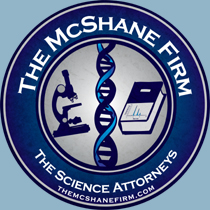In courts all across the United States evidence is presented in the prosecution of those charged with possession (either misdemeanor or felony) that the green vegetable substance seized is in fact marijuana. The way that this is typically presented in the courtroom is as an absolute and as a specific qualitative measurement. This series of […]

More on the forensics of synthetic drugs: synthetic cannabinoids and synthetic cathinones
The forensic world continues to grapple with the forensics of identifying synthetic drugs and their pharmacological and analytical chemistry characteristics. As we have written before just because there may be laws on the books or emergency or permanent regulations outlawing certain drugs and their analogues doesn’t mean that they can actually prove scientifically that the […]

Police Science: Re-purposing of Capilliary Columns for Drugs of Abuse testing
As I have written before a lot of forensic science is really legitimate analytical chemistry that is re-purposed for the courtroom, but without proper scientific method validation before deploying it into this new purpose. This re-purposing of legitimate techniques and employing them without examining the true validity of doing so is not scientific. I call […]

The danger of “I know it when I see it” identification
I have written here before about the danger of the “I know it when I see it” approach and even in combination with screening tests such as the NIK Public Safety tests. Roadside screening tests such as the NIK Public Safety Reagent Based Tests Can Provide False Positives. Here is another unfortunate example of bad […]

Roadside screening tests such as the NIK Public Safety Reagent Based Tests Can Provide False Positives
Screening tests can lead to false arrests. The characteristics of a screening test are that they are easy to use with little to no training. They are used at a point of first contact meaning typically at roadside. In science, it seems as if there is the continual struggle between fast, cheap and good. It […]

Drugs of Abuse (DOA) analysis performed today in the US
Figure 1 above: Statistics from the Substance Abuse and Mental Health Services Administration (SAMHSA) details drug use across the 50 states based on the 2006 and 2007 National Surveys on Drug Use and Health, which involved interviews with over 135,000 people around the country. (For more on the statistical breakdown of geography of non-prescription or […]


